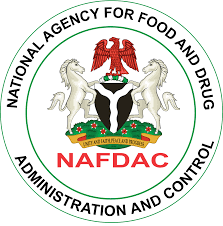Health
Kano Food poisoning: NAFDAC Apprehends Merchants of Dangerous Chemicals

The National Agency for Food and Drug Administration and Control (NAFDAC) has apprehended the merchants of dangerous chemicals used in food and drinks supposedly to enhance taste that killed three people in Kano.The three died after consuming adulterated flavoured drinks.
The agency’s Director General, Prof. Mojisola Adeyeye, made this known in a statement issued by Mr Olusayo Akintola, the NAFDAC Resident Media Consultant on Sunday in Abuja. The News Agency of Nigeria (NAN) reports that three people died in Kano in March after consuming flavored drink, allegedly containing the chemical additives. The NAFDAC chief, therefore, warned against adding chemicals or additives to food and drinks to enhance taste, stressing that such practice could result to severe illness and even death. Adeyeye said the agency would stop at nothing to ensure that only safe food and other regulated products were available in the market for consumption and use. She said that preliminary result of the agency’s investigation of the victims had been submitted to Gov. Abdullahi Ganduje of Kano State during her two-day visit to the state to assess the incident. She noted that “it was heart warming that merchants of the deadly chemicals and additives had been apprehended while further investigation continued.” According to her, the importance of food cannot be over emphasised and that when dangerous foreign elements find their way into foods and water, it becomes poisonous rather than being nutritious. She pointed out that food contamination and poisoning could occur through consuming expired food or preparing food with poorly sourced water and putting cooked food on the shelf for several days or months. She said “we are very particular about food additives, about the temperature at which food can be kept, or about the expiration date of food. If all of these are violated, then there can be food poisoning.“ Whether it is food or water, adding chemicals and other substances either to enhance the food or change its form can be dangerous, especially when we can’t verify the source and content of such additives.“ NAFDAC is now working assiduously in partnership with the Kano State Government with a view to preventing reoccurrence of the March 11 incident.”Adeyeye added that the agency would be working with the Kano State Task force under the Federal Task Force on Counterfeit and Fake Drugs and Unwholesome Processed Foods, as well as the Consumers Protection Agency in Kano to check the menace. She recalled that shortly after the news of the deaths was received, six directorates of the agency swung into action to unravel the mystery behind the sad event and found that only two of the five flavoured drinks identified in the incidence were registered by NAFDAC. She said that the three others were not in the agency’s data base. She said that samples of the chemicals and additives that were added while preparing the flavoured drinks were then collected and taken to NAFDAC’s laboratory in Kaduna for testing and further testing was conducted at the agency’s central laboratory in Lagos for confirmation. According to her, any food that is unregistered is not guaranteed by NAFDAC and that it can be unwholesome or fake food or that such food is smuggled into the country.“ We tested all the food samples and there was E-Coli bacteria in some; one would wonder how E-Coli bacteria would get into powder. It depends on the storage.“ If it is stored in a very humid condition, and expired, the packaging probably was getting compromised, you can get bacteria into dry powdered medium, but ordinarily it shouldn’t happen,” she said. Adeyeye said the Pharmacovigilance Directorate of the agency had sent an alert to all the 36 state offices of NAFDAC and the FCT to mount surveillance on unregistered products and mop them up. According to her, before any chemical can be legally imported into Nigeria, full authorisation and permit must be obtained from NAFDAC to ensure that no dangerous chemicals are imported. She noted that “NAFDAC does end-to-end monitoring for all chemicals and requests for distribution and utilisation patterns before giving importers permits to import chemicals.” She said the agency also monitored the person such chemicals were being sold to in the sellers report, adding that “all these must be clarified to NAFDAC before approval is given.” She emphasied that the public had critical roles to play in informing the agency on suspicious products to avoid falling victims of food poisoning. Adeyeye said that in spite of all the measures put in place by NAFDAC to ensure safe foods, chemicals and other regulated products, there were those who still found ways to smuggle these chemicals into the country. She, therefore, cautioned that “the public should know that they don’t have to add chemicals to food, except table salt. Chemicals kill very fast because there is no prescribed amount to use.“ To use chemical to make food or drink sour, you may never know what you are adding.“ The only regulated additives are Sugar, Saccharin and sweetening; and there are prescribed amount to put in food.“ These regulated products are inside the food and not something you sprinkle on the food like what happened in Kano,” she added. (NAN)Health
Millions of Children Experience Daily Domestic Violence in Schools, Homes Globally – WHO
Hundreds of millions of children and adolescents around the world face daily violence in their homes, schools, and elsewhere which could have lifelong consequences.The World Health Organisation (WHO) said this on Thursday.The violence includes being hit by family members, being bullied at school, as well as physical, emotional, and sexual violence, WHO said.
In most cases, violence occurs behind closed doors. More than half of those aged two to 17 or more than a billion minors in total experience violence each year according to the WHO. In three out of five children and adolescents, it is physical violence at home, with one in five girls and one in seven boys experiencing sexual violence.Between a quarter and half of minors are affected by bullying according to the information provided.Only half of the children reportedly talk about their experiences of violence and less than 10 per cent receive help.Lifelong consequences could include depression and anxiety disorders, or tobacco and drug use.As a result, many children do not reach their learning potential in school.Against the backdrop of being highly preventable, violence remains a horrific day-to-day reality for millions of children around the world leaving scars that span generations,” said Tedros Adhanom Ghebreyesus, WHO director general.The UN’s first conference on violence against children opened in Bogota, Columbia on Thursday.At the two-day conference, more than 100 countries pledged to find ways to better support overwhelmed parents and introduce school programmes against bullying and for healthy social behaviour.They also pledged to raise the minimum age for marriage.Some countries wish to generally ban children from being hit at school or home. (dpa/NAN)Health
WHO Identifies 17 Pathogens as Top Priorities for new Vaccine Development

The World Health Organisation (WHO) has listed 17 bacteria, viruses and parasites that regularly cause disease as top priorities for new vaccine development.WHO, in a study published on Tuesday, reconfirmed long-standing priorities for vaccine research and development (R&D), including for HIV, malaria, and tuberculosis – three diseases that collectively take nearly 2.
5 million lives yearly. The study is the first global effort to systematically prioritise endemic pathogens based on their regional and global health impact. Attention is also given to pathogens such as Group A streptococcus, which causes severe infections and contributes to 280,000 deaths from rheumatic heart disease, mainly in lower-income countries.Another new priority is Klebsiella pneumoniae — a bacteria that was associated with 790,000 deaths in 2019 and is responsible for 40 per cent of neonatal deaths due to blood infection (sepsis) in low-income countries.The new study supports the goal of ensuring that everyone, everywhere, can benefit from vaccines that protect against serious diseases.It aims to shift the focus in vaccine development away from commercial returns towards regional and global health needs, WHO’s Dr Mateusz Hasso-Agopsowicz, who works in vaccine research, said in a statement.He explained that in the past, vaccine R&D typically was influenced by profitability.“As a result, diseases that severely affect low-income regions received little attention.“We hope this represents a critical shift where we want to change the focus from commercial perspective profitability of new vaccines towards the actual health burden so that the new vaccine research and development is driven by health burden and not just commercial opportunities,” he said.To carry out the study, WHO asked international and regional experts what they think is important when prioritising pathogens for vaccines R&D.Criteria included deaths, disease and socioeconomic impact, or antimicrobial resistance.“We had asked experts that have expertise in pathogen epidemiology, clinicians, paediatricians, vaccine experts from all of the WHO regions, to ensure that the list and the results that we produce really reflect the needs of diverse populations worldwide,” Hasso-Agopsowicz said.Analysis of those preferences, combined with regional data for each pathogen, resulted in the top 10 priority pathogens for each of WHO’s six regions globally.The regional lists were then consolidated to form the global list, resulting in the 17 priority endemic pathogens for which new vaccines are urgently needed.To advance vaccine R&D, WHO has categorised each pathogen based on the stage of vaccine development and the technical challenges involved in creating effective vaccines.Hasso-Agopsowicz said the study is expected to guide future vaccine R&D investments, including funders, researchers and vaccine developers, and also policymakers as they “can decide whether to introduce these vaccines into immunisation programmes.” (NAN)Health
UCH JOHESU Suspends Strike

The Joint Health Sector Unions (JOHESU), University College Hospital (UCH), Ibadan,has suspended the strike it embarked on Oct. 25.The workers resumed work on Friday morning.The seven-day nationwide warning industrial action embarked upon by the unions was to press home their demands ofadjustment of Consolidated Health Salary Structure as was done with the Consolidated Medical Salary Structure sinceJan.
2, 2014 and implementation of consultant cadre for pharmacists in federal health institutions. Others are upward review in the retirement age from 60 to 65 years for health workers and 70 years for consultants, andpayment of outstanding salaries of JOHESU members in professional regulatory councils.The UCH JOHESU Chairman, Mr Oladayo Olabampe, said that the strike was suspended as directed by the national body.He explained that “the suspension followed an MoU signed between JOHESU national leadership and Federal Government.“The Federal Government asked for a maximum of six weeks counting from Oct. 31, to meet our demands.“Based on the MoU signed, the JOHESU National Executive Council met and resolved that the strike be suspended on Fridaynationwide.”According to him, JOHESU UCH is obeying the order, and workers have resumed work.Olabampe said that if the demands were not met after the six weeks, they would embark on an indefinite strike. (NAN)
























